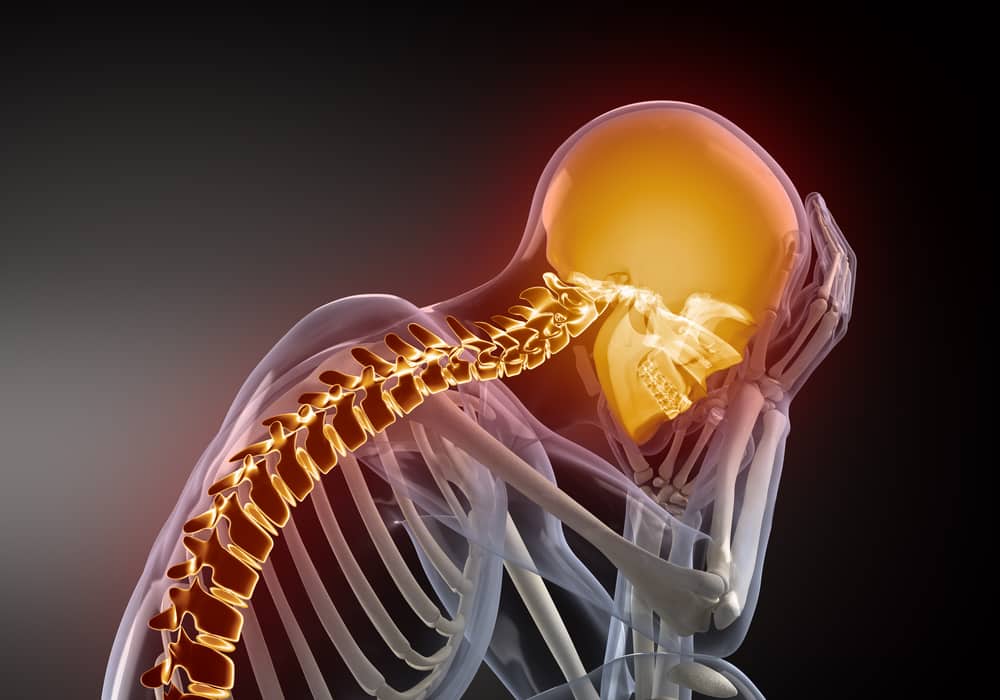
What is Trauma?
Trauma itself is a very broad term – in EMS, trauma brings up images of severe internal and external injuries and life-threats. Trauma is far more than physical injuries. It can also be emotional and mental as a result of a one-time event or a series of experiences like neglect, abuse, or violence. We cannot determine what is traumatic to someone because everyone experiences things differently.
Traumatic experiences can be divided into two components: objective and subjective. The objective are the events that result in the trauma. The subjective is how the individual experiences those events. A car accident resulting in minimal injuries could leave one person driving themselves home from the hospital, and another person may not want to get in a car for weeks. This is why it’s impossible to know what constitutes a traumatic experience for every person.
Traumatic experiences can be divided into two components: objective and subjective. The objective are the events that result in the trauma. The subjective is how the individual experiences those events. A car accident resulting in minimal injuries could leave one person driving themselves home from the hospital, and another person may not want to get in a car for weeks. This is why it’s impossible to know what constitutes a traumatic experience for every person.
Traumatic Experiences
An event, or ongoing event, becomes traumatic when it makes someone feel helpless, alone, and overwhelmed. There can or may not be any physical harm involved in the traumatic experience.
These feelings, particularly from repeated events such as physical or emotional abuse, result in a loss of a sense of security, making someone feel continually helpless. The more intense the emotions are during the experience dictates how much of a traumatic experience it will be for the person.
These feelings, particularly from repeated events such as physical or emotional abuse, result in a loss of a sense of security, making someone feel continually helpless. The more intense the emotions are during the experience dictates how much of a traumatic experience it will be for the person.
Causes of Psychological Trauma
Any traumatic experience can result in psychological or emotional trauma since it depends on how the individual copes during the experience. It’s more likely for someone to have psychological trauma from events that happened in childhood – if the trauma is never resolved, the feelings of helplessness and fear continue into adulthood.
A childhood trauma is anything that disrupted a child’s sense of safety, such as an unstable environment, separation from a parent, illness, any type of abuse, violence, or neglect. Traumatic experiences include anything someone was unprepared for and happened unexpectedly or repeatedly.
Some overlooked experiences that can result in psychological trauma include surgery (particularly as a baby or young child), death of someone close, ending of a significant relationship, diagnosis of a life-threatening disease/illness, or a humiliating/disappointing experience. Ongoing stress, such as a chronic illness or living in an unsafe area, can also cause psychological trauma.
A childhood trauma is anything that disrupted a child’s sense of safety, such as an unstable environment, separation from a parent, illness, any type of abuse, violence, or neglect. Traumatic experiences include anything someone was unprepared for and happened unexpectedly or repeatedly.
Some overlooked experiences that can result in psychological trauma include surgery (particularly as a baby or young child), death of someone close, ending of a significant relationship, diagnosis of a life-threatening disease/illness, or a humiliating/disappointing experience. Ongoing stress, such as a chronic illness or living in an unsafe area, can also cause psychological trauma.
Symptoms of Psychological Trauma
Most people experience a strong reaction right after the traumatic event, but some experience continued and increasing symptoms long after the event is over. The length and amount of psychological trauma is dictated by the type of event, emotional support that is available, life stressors, personality type, and coping mechanisms.
Some symptoms of psychological trauma include:
Some symptoms of psychological trauma include:
- Nightmares
- Images of the event
- Memory loss and concentration difficulties
- Confusion and disorientation
- Avoiding places, people, or activities that trigger memories of the event
- Withdrawal from social activities and lower interest in activities that were enjoyed before
- Extreme fatigue/exhaustion
- Insomnia or changes in sleeping patterns
- Sexual dysfunction
- Aches and pains throughout the body
- Overwhelming fear, disbelief, shame, anger, depression, and emotional-numbing
- Anxiety and panic attacks
Treating Psychological Trauma
When psychological is left untreated, people may turn to drugs and alcohol to help themselves cope. They may also engage in impulsive and self-destructive behavior, and struggle to make healthy lifestyle choices. The effects of psychological trauma can devastate someone’s life.
Therapy is the best treatment for psychological trauma to help with talking through the feelings and emotions of the traumatic experience. A therapist can recommend coping skills and finding other resources and support.
EMS and Traumatic Events When it comes to accidents, fires, natural disasters, and many other events, EMS are quickly on-scene to start helping patients, which means they are communicating with people who have just experienced an event that could result in psychological trauma.
Directly after a traumatic event, survivors may feel intense relief and being alive, and/or feel stressed, angry, and scared. They may struggle to adjust to the present from thinking about what just happened. They will often over-react to sounds and sights around them. Use patience and don’t ask them difficult questions. Even though they are upset, don’t tell them everything will be fine – there’s no way of knowing that with absolute certainty.
Therapy is the best treatment for psychological trauma to help with talking through the feelings and emotions of the traumatic experience. A therapist can recommend coping skills and finding other resources and support.
EMS and Traumatic Events When it comes to accidents, fires, natural disasters, and many other events, EMS are quickly on-scene to start helping patients, which means they are communicating with people who have just experienced an event that could result in psychological trauma.
Directly after a traumatic event, survivors may feel intense relief and being alive, and/or feel stressed, angry, and scared. They may struggle to adjust to the present from thinking about what just happened. They will often over-react to sounds and sights around them. Use patience and don’t ask them difficult questions. Even though they are upset, don’t tell them everything will be fine – there’s no way of knowing that with absolute certainty.
Sources
American Psychological Association, “Recovering emotionally from disaster” https://www.apa.org/helpcenter/recovering-disasters.aspx
Cascade Behavioral Health, “Symptoms, Signs & Effects of Emotional Trauma” https://www.cascadebh.com/behavioral/trauma/signs-symptoms-effects
GoodTherapy.org, “Posttraumatic Stress/Trauma” https://www.goodtherapy.org/learn-about-therapy/issues/ptsd
HelpGuide.Org, “Emotional and Psychological Trauma” https://www.helpguide.org/articles/ptsd-trauma/coping-with-emotional-and-psychological-trauma.htm
Sidran Institute: Traumatic Stress Education & Advocacy, “What is Psychological Trauma?” by Esther Giller. https://www.sidran.org/resources/for-survivors-and-loved-ones/what-is-psychological-trauma/
U.S. Department of Veterans Affairs, “Common Reactions After Trauma” https://www.ptsd.va.gov/public/problems/common-reactions-after-trauma.asp
Cascade Behavioral Health, “Symptoms, Signs & Effects of Emotional Trauma” https://www.cascadebh.com/behavioral/trauma/signs-symptoms-effects
GoodTherapy.org, “Posttraumatic Stress/Trauma” https://www.goodtherapy.org/learn-about-therapy/issues/ptsd
HelpGuide.Org, “Emotional and Psychological Trauma” https://www.helpguide.org/articles/ptsd-trauma/coping-with-emotional-and-psychological-trauma.htm
Sidran Institute: Traumatic Stress Education & Advocacy, “What is Psychological Trauma?” by Esther Giller. https://www.sidran.org/resources/for-survivors-and-loved-ones/what-is-psychological-trauma/
U.S. Department of Veterans Affairs, “Common Reactions After Trauma” https://www.ptsd.va.gov/public/problems/common-reactions-after-trauma.asp


